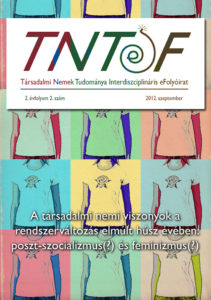The Image of the (Female) Teacher before and after the 1989 System Change in Hungary
Main Article Content
Abstract
The basic assumption of the paper is that teacher identity is a cultural construction and gender stereotypes play an especially powerful role in it. Researches in the UK and US in the field of gender and education studies have found that male teachers are presented as heroes and have normative masculine qualities in the cinema and media representations while female teachers are associated with activities and values traditionally seen as feminine, often reduced to the conflation of the roles of mother and teacher. It is likely that the unequal representation of male versus female teachers post-1989 shows similar tendencies as those found in Britain. The paper compares the representation of school teachers before and after the regime changes. It analyzes the first season and last season of the same Hungarian television soap opera, ‘Neighbours’ (Szomszédok), from 1987 and 1999. According to my findings, the changes in gendered representations point in the direction of developing/evolving a more patriarchal representation of women educators in the allegedly more democratic social space in the wake of 1989.

